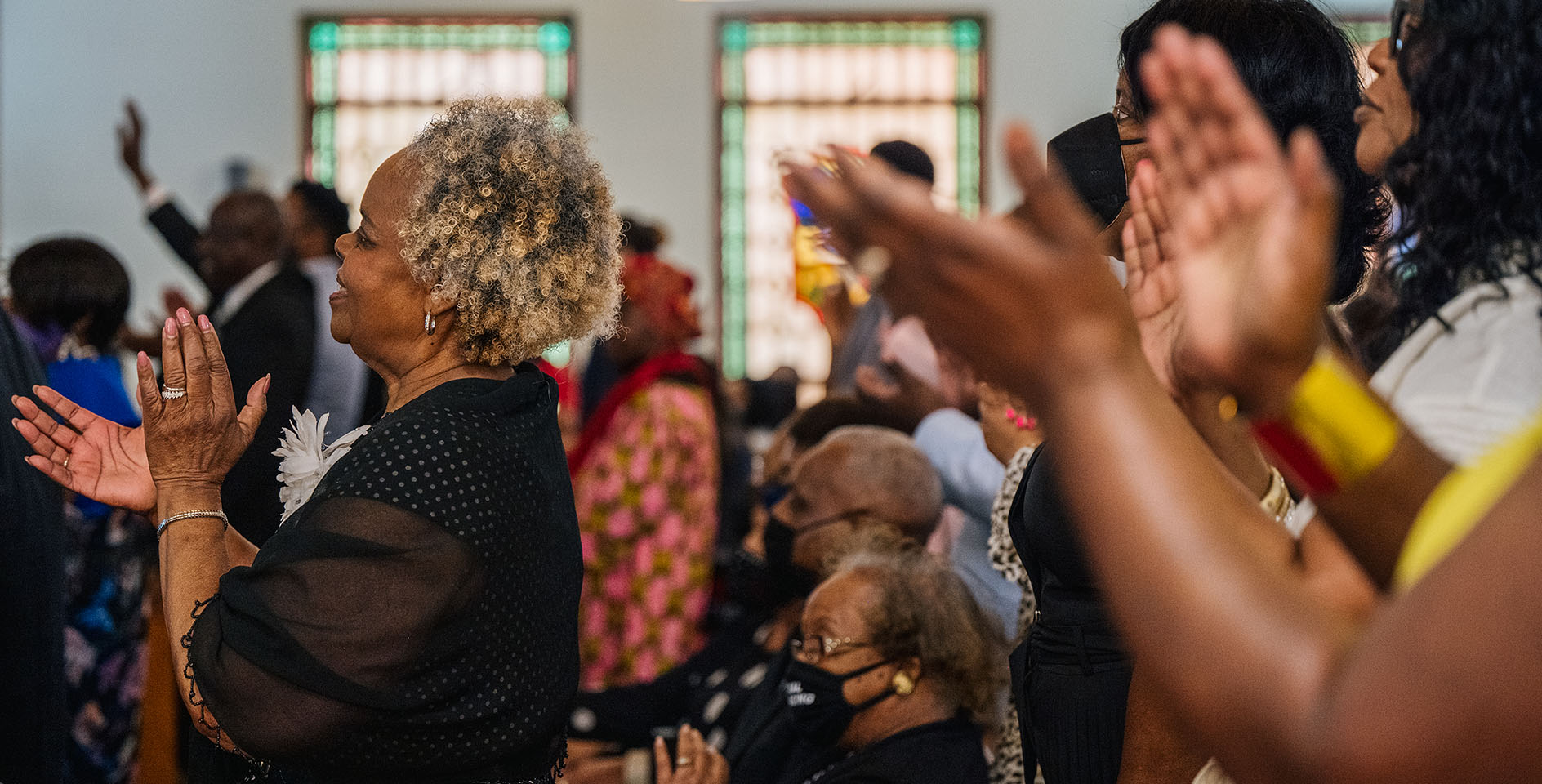How can a Christian rightly magnify the Lordship of Jesus while submitting to a government that does not share the same values? In 1 Peter 2:13-17, the Apostle Peter helps us answer this question. Writing to an audience of believers who were facing persecution under a cruel government, Peter wanted his readers to understand the primacy of their relationship to Jesus and the impact it should have on all of their relationships. What we find in 1 Peter 2:13-17 is that our relationship to God must inform and shape our relationship to everyone and everything else in this world. Let’s consider Peter’s words,
Be subject for the Lord’s sake to every human institution, whether it be to the emperor as supreme, or to governors as sent by him to punish those who do evil and to praise those who do good. For this is the will of God, that by doing good you should put to silence the ignorance of foolish people. Live as people who are free, not using your freedom as a cover-up for evil, but living as servants of God. Honor everyone. Love the brotherhood. Fear God. Honor the emperor.
Understanding our submission to authorities
In verses 13-15, Peter calls his audience to be submissive to every human authority that God has placed in their life. This is not because these authorities possess some sort of intrinsic authority that can never be forfeited. It is because any authority that a human institution possesses is an authority that has been delegated to that institution by God himself. Without having to say it, Peter believes that human authorities only possess a derived authority from God and therefore are not to be submitted to in all circumstances.
Peter’s audience should only submit to “every human institution” if they can do so “for the Lord’s sake.” If, however, their submission to a human institution would violate their relationship with God, then they must resist the authority of such an institution. We see this clearly in passages like Acts 4:18-20, which says,
So they called them and charged them not to speak or teach at all in the name of Jesus. But Peter and John answered them, “Whether it is right in the sight of God to listen to you rather than to God, you must judge, for we cannot but speak of what we have seen and heard.”
However, when these human authorities are not forcing Christians to live contrary to God’s call on their life, then Christians should be submissive to such human institutions.
What, then, allows the Christian to live in this position of submissiveness? According to 1 Peter 2:13, it is because of the Lord. The Lordship of Christ has effectively made them “sojourners and exiles” in this land by his resurrection from the dead, which brought victory over their enemies. So, while they live in this world temporarily, they live as those with hope in God through Jesus Christ. They are not angry nor are they joyless. They know who wins in the end, therefore, they can willingly submit to the human authorities that God has placed over them, as we see in Romans 13:1-7.
This is God’s will for us—magnifying the Lordship of Jesus in our relationships to God, the Church, society, and the government.
But why should Christians live in submission to every human institution? If Jesus is Lord, why should we submit to anyone else’s authority? Peter answers with an allusion to verses 1 Peter 2:11-12. Accordingly, when Christians live in obedient submission to the human authorities in their life, they shame the accusations of their peers who accuse them of evil.
At first, this probably seems inaccessible to us due to our own experience, but if we remember the gospel accounts and the story of the Church’s growth under the guidance of the Holy Spirit in the book of Acts, you will recall that there were times when opponents of the gospel attempted to stall the advancement of the Kingdom by falsely accusing them of social disobedience. Consider Acts 16:19-22, which reads,
But when her owners saw that their hope of gain was gone, they seized Paul and Silas and dragged them into the marketplace before the rulers. And when they had brought them to the magistrates, they said, “These men are Jews, and they are disturbing our city. They advocate customs that are not lawful for us as Romans to accept or practice.” The crowd joined in attacking them, and the magistrates tore the garments off them and gave orders to beat them with rods.
The accusations of the owners were false. How is that the case? Well, Paul and Silas were Roman citizens. They weren’t promoting customs that were illegal. They upheld the customs of Rome that were in keeping with their confession of faith in Christ. By living in submission to the human authority of the Roman government and doing good (freeing a woman from demon possession and sharing the gospel with the Philippians jailer), Paul and Silas were vindicated in the sight of the people, and the claims of the owners were demonstrated to be false. The foolish people were decidedly “silenced” when Paul insisted on the officials formally escorting him and his companions out of town.
So, Peter, by commanding his readers to “do good” in the context of the world is promoting God’s will for their lives. This means that God’s will for our lives can be carried out in all sorts of contexts, even under bad rulers and governments like those in Rome during the time of Peter’s ministry. A good government with good rulers is not a prerequisite for a life of faithfulness to Jesus. And while we should pray for our leaders and our country that we might be able to live godly lives in peace, if persecution comes upon the Church for its faithfulness to Jesus, then we must be ready to suffer and persevere just like Peter’s audience and so many others in the world today.
Living as servants of God
In 1 Peter 2:16, Peter moves from his readers’ position of submission to their perspective as servants of God. While it was and is completely true that Peter’s audience was set free from the condemnation of sin and forgiven, this does not mean that they are now free to live contrary to God’s will. In reality, the Christian should be the type of person that is growing in godly desires and fleeing evil desires. But Christians can and will struggle with sin. Peter’s point in verse 16 is to highlight that their freedom in Christ should never be used to justify any behavior that would bring dishonor to the glory of Christ. While they are free from the world, they are now servants of God, and that perspective should inform their behavior. They belong to God, not themselves.
What does this mean for our question regarding how we can magnify the Lordship of Jesus while submitting to a government that does not share the same values? It means, as one commentator put it, that we can “give each relationship its due” in light of Jesus’ Lordship. Peter concludes by referencing four realms in which relationships for his readers exist: a social realm (“Honor everyone”); a church/ecclesiastical realm (“Love the brotherhood”); a spiritual/theological realm (“Fear God”); and a civil/political realm (“Honor the emperor”). In each realm, we must show honor, love, and respect for the sake of the Lord Jesus Christ.
Regardless of how hateful and unkind society may become, we are called to live with honor and respect for the members of our society as those created in God’s image. Regardless of how lovable or unlovable our fellow church members may seem, we are called to love them as God has loved in Jesus Christ. Regardless of how worthy others in our lives may appear, we are called to fear and revere God supremely. God deserves the highest place of honor and reverence in our lives. Regardless of how wonderful or terrible our government may operate, we are called to submit to its authority and support its God-ordained purpose (punishing evil and promoting good) so long as they do not call us to disobey God.
This is God’s will for us—magnifying the Lordship of Jesus in our relationships to God, the Church, society, and the government. We are to live and relate to others as those people who genuinely believe that we have a hope in a living Savior. And we are to live in the freedom of Christ as servants of God for the sake of others coming to know him.







